Hello and welcome back to What China Wants.
Today we are talking China politics to coincide with the start of Xi Jinping’s third term in office. To do so we are rejoined by Professor Jinghan Zeng of Lancaster University, an expert on the politics of Beijing.
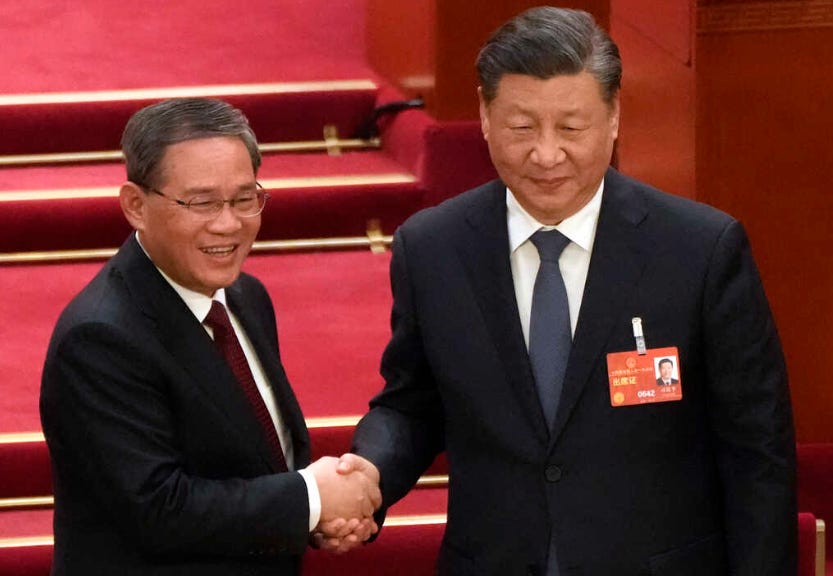
Here are some highlights of our discussion:
For Xi’s third term, there is likely to be continuity in his political stance (such as a reassertion of the Party over the economy).
There might be some changes in economic policy as economic growth is still important, for example supporting the private sector more - but too early to tell.
Chinese political moves are made behind closed doors (as per the old Soviet system) and not out in the open like in the UK or US, so it is hard to propery understand why things happen.
It is also not always possible to understand the reasons behind personnel moves, and the West should be hesitant about making judgements given the opacity. For example, the appointment of Wang Huning (a trusted advisor to Xi) to oversee the reunification with Taiwan - we don’t know the reason behind this.
On Taiwan, the West might be becoming more hawkish, but China’s public-facing position on the island hasn’t changed much recently.
China sees the UK as balancing between Washington as a security partner and Beijing as an economic partner. If, however, the UK takes too strong a line on China, then retaliations will be expected.
You can also listen to the podcast on Apple, Amazon, or Spotify.
As always please do share, comment, and subscribe. We’ll be back soon with more What China Wants.
Many thanks for listening.
***
Here is the transcript:
Sam Olsen: Hello, and welcome back to What China Wants with me, Sam Olsen, and Stewart Paterson, as always. You may have seen in the news over the last few weeks a steady stream of items coming out about changes in China's political scene, including, for example, the announcement that Xi Jinping has now being given an unprecedented third term in office. To be blunt, if we had been talking about this 10 years ago, even maybe five years ago, the internal workings of the Chinese political system would not have been of much interest to anyone outside of the China-wonk community.
But now, given China's importance to the world, and the state of geopolitics, Stewart and I thought that this is incredibly important to actually learn a bit more about what is happening internally in the Chinese political scene, and what this means for the rest of the world. And it also comes in a good week, when we have had the Integrated Review Refresh in the UK and the announcement about AUKUS with UK, the US and Australia, of course. So there are lots of things happening which relate to China.
To help us unpick this, we are joined by our old friend of the show Professor Jinghan Zeng from Lancaster University, here in the UK. Now, for those that have not heard Jinghan speak before, he is a Professor of China and International Studies at Lancaster University, and is the Academic Director of China Engagement at the Confucius Institute there as well. He was educated at the University of Warwick and the University of Pittsburgh, and has written extensively on China and surrounding fields, for example, 'Artificial Intelligence with Chinese Characteristics: national strategy, security and authoritarian governance'. Welcome back, very good to see you.
Jinghan Zeng: Thank you for having me.
SO: Just to get things started, what might be very useful is just to give us a reminder about the internal Chinese political structures that are being spoken about in the news at the moment, like the NPC and the CPPCC - just a brief description to make sure everyone is understanding why some of the changes in China's political leadership have been so important, and will be so important for the world.
JHZ: Well, the National People's Congress is China's national legislature. In constitution, this is the supreme state of sovereignty of People's Republic of China, it is where the Chinese presidents are supposed to be elected. So, I think, when the conference is commenced that is where the President will be elected from it, so that makes it a very important kind of event to showcase about new Chinese leadership. And the other one you talk about is the Chinese People's Political Consultative Conference. That is a political advisory body in China, where it has a function of providing political consultation with people from different backgrounds - ethnic background, class background, occupational background - and that serve a function of providing political advice to the government. Those two sessions are really organised as a way of setting the tone of general overall direction of the government, deciding about the leadership, officially appointing the leadership. So that makes it a very important event to the Chinese politics.
Stewart Paterson: Just to clarify for our listeners, obviously, some of them will remember that several months ago, the media was reporting that Xi Jinping had been installed for an unprecedented third time in office. And so, if we can just disambiguate this, he is President of China, and that authority stems from the National People's Council, the session that has just finished. But his real power comes from being Chairman of the Central Military Commission, and General Secretary of the Communist Party, and those were the posts that he was given for a third time back in the autumn. Is that correct?
JHZ: Well, I think in a way, it is correct in current context, but some people might say that being the Chairman of the Central Military Commission probably can be potentially powerful, if not the most powerful post. So, it depends on how you look at it. In Chinese history, I think in the past, we do have two separate people. One is being the President of the People's Republic of China, and then a Chairman of the Chinese Communist Party, it can be two people. But I think more in the past few decades, it has been combined into one. And I think they all have different functions, regarding the post and what are their remits.
SP: On the National People's Congress, it has just under 3000 members. Could you explain to our listeners where they come from, how they are chosen, and if there is anything in the make-up of this body, this time round, which people should be aware of in terms of the indications of where their loyalties may lie, vis-a-vis, the President and potentially other factions? Is there anything remarkable about the make-up?
JHZ: Well, I think with the National People's Congress, the members of that are being elected from a lower level. Let's say the People's Congress, so there are multiple levels of that People's Congress. At the top level, we have got the National People's Congress, and below that level will be the provincial level People's Congress, and then city level People's Congress, and then below. So, they will be electing who is going to be appointed as a member of the above one from the lower one. So the National People's Congress members are being appointed from the local People's Congress at a provincial level, and the local legislators, which are indirectly elected at all levels, except from the county level. And that membership is part-time, I think I have to emphasise here, and carries no pay, and you can spontaneously hold posts in different parts of the government, for example, or the Party, and usually it includes some senior officials there. So basically, I think it has been elected from a lower level kind of legislature.
SP: Just to be clear, Jinghan, all the members of the National People's Congress are members of the Communist Party. Is that correct?
JHZ: Well, I would not say 'all'. I think there is no formal rule to say all National People's Congressman should be Communist Party member, I do not think that is a required rule for that. In terms of proportion of it, I think we need to look into the new data, I think it really depends. There is no fixed rule set that you have to be Chinese Communist Party member in order to be a National People's Congress member.
SO: But whether they are Communist Party members or not, they have all come together to grant Xi Jinping an unprecedented third term. here has not been any debate about that, it has all happened quite smoothly, right?
JHZ: Well, I would not say there was not debate. I think obviously, we within the government and the Party they have their own internal system of having that debate. So, in the past, we can refer that to the USSR's democratic centralism. And that refers to, what we mean is that in a domestic meeting, people can come and debate things, and we can have different opinions, that is fine. But once the decision has been reached, everyone has to unconditionally support that decision. So that is something that the Chinese Communist Party learned from the Soviet Union. So I would not say there was not debate there. Clearly, there is debate within the Party, and within the government, about the new leadership, who should be there and who should not be there.
But I think from a certain point of view, those debates are not necessarily transparent, because the way China's politics is organised are different from the kind of way we think in the United States, or in the UK, where you can have an open kind of discussion about disagreements within the leadership, or challenging or even rebelling against the leadership. That is not how it works in the Chinese politics. There is a debate, but mostly taking place domestically in a domestic context. And externally, what they want to show to the external audience is unity and cohesion.
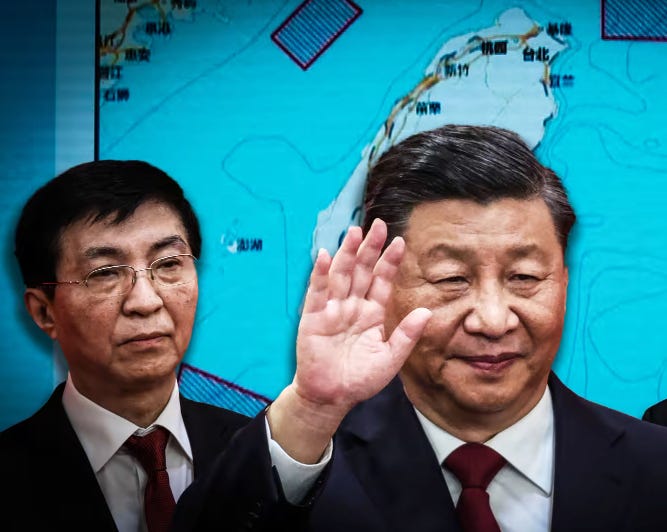
SO: See that is very interesting. And a lot of people will be surprised by that, because the NPC is considered by many Western commentators, as just being a "rubber-stamping" organisation. And I suppose if you just look at the outcome, then you might think that, but what you are saying is that there is a nuance and there is a debate before anything becomes public, so therefore, obviously, it is just a different way of doing something but there is a debate that happens before.
I suppose what is more important is not necessarily how Xi Jinping has got there, but the fact that he has got there, and has cemented his power. We spoke about this in October when we had the Congress then. And at that point, you said we should wait for a few more months to see exactly what Xi Jinping's consolidation of power would mean for the country and therefore the world. What do you think the latest indications are about Xi Jinping's consolidation of power? Do you think that this is a precursor to China changing tract? Are we looking at fundamentally different policies being pushed through now, or is it still too early to tell?
JHZ: Well, I think having Xi Jinping as a President for the third term, I think what it really means, or probably if you want a takeaway, probably it would be continuity. We already know what he has been working on in the past 10 years. I think it is fair to say that there was a lot more emphasis on national security, and the leadership of the Party and the consolidation of the political system. I think that also he put a lot of emphasis on ideology and within the Party I think a lot of emphasis what it means to be a 'Communist' Party, and focus a lot more on the political beliefs, ideological beliefs. I think there is a clear sense of that continuity being there.
But at the same time, I think we can see is that the changes will be at the government level, when you have the new State Council leader, the Premier, and what kind of economic policies the Premier wants to implement, and what precisely changes they want probably at a lower level. I think that is something we need to observe and pay more attention to.
SO: Yes, could you just tell us a little bit about the new Premier Li, because I think he is very unknown in the West.
JHZ: I am not surprised, because all the Chinese leaders are unknown to the West, right? If you go back from today, we would have this conversation 11 years ago when Xi Jinping was selected as the Chinese leader, and I think with all the media saying "we don't know Xi Jinping", "who is Xi Jinping?" and that is normal. For this new Premier, I think, obviously, he was known for being the one in charge of Shanghai, and also, the way of dealing with COVID, that has been widely reported in the media.
I think what is interesting is that he is a very different kind of leader from what we would be expecting, because usually when you have a new premier being selected, that premier needs to have the experience of being Vice Premier and working in China's State Council for quite a long time. That was usually to be a rule of the step-by-step kind of promotion system in China. So, what people usually expect will be that the new premier needs to be someone who was already working in a State Council for quite a long time, especially being the Vice Premier. But his career development trajectory is very different. He has been promoted from a local leader directly into the centre of the Chinese government, so not something that happens very often.
And what is most important to me, I think, is the message sent by the new premier on the Chinese economy, and the discussion that has been happening in the past few weeks is about emphasis on private sector, how we can support the private sector. Because there was a big concern within China, about whether it will mean, a lot more emphasis on getting rid of the private sector, or if moving to a 'communist' society, what does this mean for private entrepreneurs, for the private sector - that they are losing the support for the government? And also what will be the future of it to the market economy, things like that. So I think what is new with the new premier being appointed, is a lot more emphasis on economic recovery, and we are going to continue to support the private sector, the private economy. I think that is probably the most important message to the Chinese audience and maybe to the to the rest of the world.
SP: That is very interesting Jinghan, because obviously, a lot of the economic data coming out of China, in the last year or so has been showing the ascendancy of the state sector. Whether you look at their share in corporate profits, or their share in fixed asset investment, the state sector has been increasing in importance in the last couple of years. What would you say should be the key performance indicators that market watchers and potential investors should look at to determine whether this rhetoric about restoring the importance of the private sector is actually being translated into action?
JHZ: Well, I think that is a very good question. I think a lot of things to watch out for will really be the kind of policy that has been implemented. You can see that in the past three years, I think the biggest barrier of Chinese economic growth will have been the zero COVID policy. I think that is the area people has been concentrating on, it has taken away a lot of resources, and because that policy requires strict compliance with state rules. So, you can see that kind of state power being there to play kind of role in people's day to day life, but then the emphasis or the priority of economic growth has been less prioritised. I think you can fairly say that preventing people from being contracted with COVID was the priority, and economic growth has become secondary.
And now I think a good thing is that the rhetoric has changed, which signals a good direction of travel, that now economic recovery is coming back to the agenda. Zero COVID is gone, permanent and forever. I think that is already significant to the Chinese people, because in the past three years, the way the society has been organised, and economic activity has been organised has very much around the clock of zero COVID. So I will say that even for the rhetoric being focused on economic growth is already a big step at this stage.
We all know that zero COVID is away, and you can see the concrete kind of policy of restoring international travel for example, and giving more visas to the foreign investors. I think all these things are moving to the right track. And then you are seeing the kind of GDP growth target of 5% being set there. I think, again, that is a target for government to achieve, and I think it is likely to be achieved. So I think you can say very much of the return of economic kind of priority or seeing the economic growth of the pre-pandemic time.
So, all the messages are there. But having said that, we have to recognise the challenge China is facing at the moment. The slowdown of Chinese economy is there, and everybody knows there are considerable systematic risks for the real estate industry in China, lack of domestic consumption, and I think the government needs to work out how to restore people's confidence in business, especially sectors like tourism, catering, retail service, which have been significantly damaged by the zero COVID policy, as they did in all countries in the world, so the question is how to restore people's confidence?
I think what has been happening now is people tend to save a lot more in China, and nobody really wants to invest or wants to spend because of that insecurity of nobody knows what the future of China is going to become, what the economic future of China is going to become. That makes it quite challenging. I think what the government is trying to do now is to say, "Okay, all things are coming back, economic growth is still very important." That rhetoric I think matters to help a bit.
We have already seen that the government has been sending messages to attract foreign investment. I think in the past few years, we can say that that door for foreign investment, or even for travels for our foreigners has been closed, right? Zero COVID made China really isolated during that time in order to fight for this virus. And now, I think we see a clear message and also concrete policy to welcome foreigners e to go to China. And in the university sector, we have seen lots of kinds of Chinese government funding, or different kinds of funding from China, to welcome students to go to study in China, to do cultural exchange kind of programmes. So those fundings were there and available in the past few months, and are concrete there. And also, we saw the message of the pilot free trade zone for examples the Hainan Free Trade Port.
So, I think all those things are moving to the right track. I understand that for foreign investors, you still need to wait and see about probably a little bit of certainty in the long run of the direction of travel. At least in the past few months' time, you can see that China very quickly dropped its zero COVID policy, very quickly made the changes, and there is no return of zero COVID. And now, I think China is ready to promote economic growth. I think all those rhetoric are being there and concrete, which is good. But I understand why some foreign investors still want to wait a bit longer to say whether it is the right time for them to come back.
But again, I think in the investment world, we always know risk is associated with the returns, right? So, I think it depends on which side your view is on, what do you think the future of China is going to be? If you think that China has continued to deliver and is going to be the future largest economy in the world, you still believe that, then coming to invest in China now will lead to very good return. However, if you think that China has already reached its peak, and is not likely to continue that growth, and you already have that kind of views, then you are unlikely to come to invest in China and the diversification in all the things is being there. I think it is less about confidence of what has been happening now, but more confidence of your own judgement - for investors, that is your own judgement on the economic future of China.
SO: So of course, one of the big risks that comes to investors' lips, especially in the last few months, is the risk about a conflict over Taiwan. There have been moves internally in the Chinese political system, which perhaps have raised a few eyebrows, for example, moving Wang Huning, who is a trusted adviser to President Xi Jinping to be Head of Unification with Taiwan. There are also lots of discussion points in the Western media about how China is hoarding gold and putting its economic preparations in place for potential conflict. In other words, the rhetoric seems to be around China preparing for some kind of move on Taiwan, and 'damn the consequences' in terms of the economics and the politics. What do you think to that? What is the messaging coming out of China? And do you think that the recent NPC political manoeuvrings, for example about Wang, will make a difference to that?
JHZ: Okay, I think it depends on the personnel changes. I am being very careful, I think in making any kind of judgement on what we should be reading from personnel changes because, let's be honest, we do not know much about Chinese politics because of the way that the Chinese Communist Party and the government organise the leadership changes, to try to make things behind closed doors, they want to decide within themself and to show externally cohesion and unity, and so it is very challenging to really read those personnel changes.
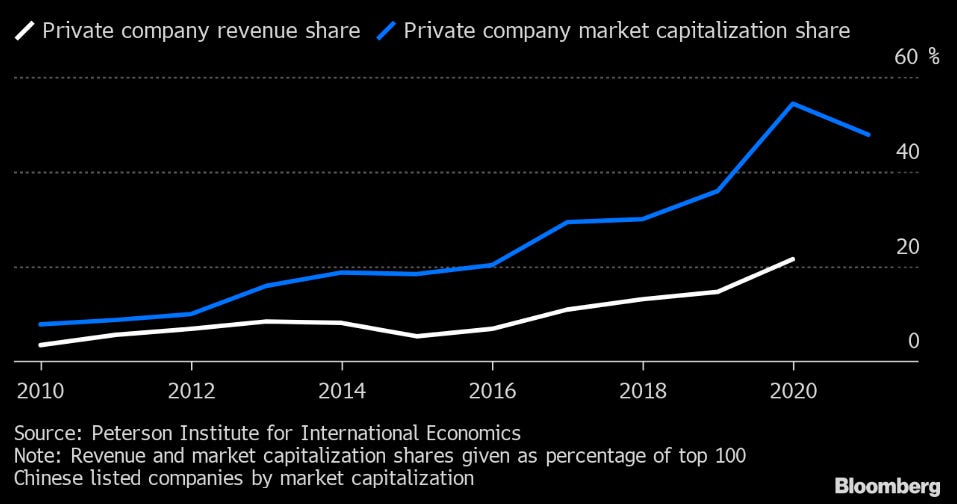
I think, currently, you can also read that the movement of Wang can be another Chinese attempt to find and promote peaceful unification, through having someone with an academic background, things like that. There are multiple hypotheses out there, and it is very difficult to verify one or another, so making any decisions based on partial information, or where we do not have that information, that would not be a good decision. So, I think that is something we should be very careful about. I think a lot of people believe in a specific hypothesis, because they already have their own view about China, and its values and belief systems. So that would not very be good for investors, for example, to make decisions in a real world.
My view is that China is still committed to peaceful unification, that is continuing to be the most important goal of China. And when we have really seen the hype - I would call the hype - of the threat of a war in Taiwan, to me, I think there were two major factors. One is Nancy Pelosi's visit to Taiwan, and the other is war in Ukraine.
So for the first thing, I think China has always been consistent in the way they do not want a high profile US state visit or US visits to Taiwan, because they think that is going to encourage the independence movement in Taiwan, and this is why China has been responding in military exercises. And if you really compare that with the previous kind of tension we had in Taiwan district in 1997, for example, I do not think this time is rather more serious than that. Has this changed China's calculation of 'when' or making them more likely or a lot more likely to use military ways to unite with Taiwan? I do not think so. And regarding the war in Ukraine, I think a lot of rhetoric in the West is "we already made a mistake about Russia, so we shall avoid the same mistake about China".
So, what has been really changing is a Western perception of this matter, it is not the Chinese perception of the matter on Taiwan. China's perception of Taiwan has been consistent. China considers Taiwan is part of China, and China wants to unify with Taiwan. Obviously peaceful unification is the most frequently mentioned option, but China does not want to give up other options; this would mean potentially minimum options. And when those kinds of lines are coming out in the in the news, people were getting a lot more nervous nowadays. But is that new? I cannot find anything new here. China has been having the same rhetoric, same message for the past four decades. Has anything changed in China's eyes? I don't think so, the message has always been there, and there is no war really been happening there. So why suddenly should we change our risk assessment about it? I think that's a question...
SP: Jinghan, maybe I can chip in there and say that I think there is a general perception that for much of the last 20 years, China's economic growth and deeper engagement with Taiwan was supposed to eventually make reunification in a peaceful way irresistible to both populations. What we have seen in the last few years, I think, has been China's growth model being questioned. And certainly, if one believes, as perhaps I do, that the growth numbers have been exaggerated, the attractiveness of China as a market has been diminished. If you combine that with the demographics, then perhaps there is a growing sense that China's window of opportunity, the period during which the appeal of reunification is at its maximum, is actually starting to pass. And I think the fear is that China, faced with domestic problems, and faced with a falling level of appeal to the Taiwanese, might choose a different course of action. I think that is where some concerns are coming from.
JHZ: Well, I think that is clearly one hypothesis of that. Again, I think there are many hypotheses, I can provide another hypothesis here as well. So, if you go back to Mao Zedong's era, or Deng Xiaoping's era, and think about the issue of Taiwan in the mind of the Chinese Communist Party leader, what are their roles? By then they probably would not be thinking China will become the second largest economy in the world. They would not be thinking that economic hands will be in China and for China to find economic ways to win with Taiwan. Despite so, I think Deng Xiaoping has made it clear let's leave that issue to a future generation. And the same thing has been happening in the territorial disputes between China and Japan in the East China Sea. China calls it Diaoyu Islands, and Japan, calls it Senkaku Islands. So, was that thinking being driven by the view that in the longer term time is on our side, we are going to become better and better, you are going to become smaller and smaller, so in that way, I will eventually reunite with you in economic ways. I think, yes, probably that will be one consideration.
But I think the main consideration is, “This is a very challenging issue, a very controversial issue. We cannot solve it now so let's pause it, maintain the status quo, and leave it for the future”. That would be my hypothesis of interpreting what has been happening in all generations. And obviously, yes, you can see that in Jiang Zemin's era, Hu Jintao's era and now Xi Jinping's era, you see the rise of the Chinese economy, so there are a lot more tools that China can use than previous leaders. But the view that China is losing its ring of opportunity, because of the slowdown of Chinese economy, and time is not on China's side so you have to solve this problem quickly - well, I think I have my doubts, in that.
I think at least in China, a lot of people still believe China’s future will still be optimistic, and there will be opportunity and more economic tools available for China to do things. And I do not think that China is being pushed to say “We have to find a hard way to deal with the Taiwan issue because time is not on our side.” I think it is fair to say this is a new argument being made recently, because a lot more economic forecast has been making that prediction, and then the demography of Chinese going down, again, is a recent phenomenon.
SO: Jinghan, just looking at the time, we have got only time for one more question, and I want to just finish off by looking at the two announcements made by the UK this week. First of all, around AUKUS, along with the Australians and Americans. And secondly, it was about the Integrated Review Refresh, which had a mixed view on China. It said that the UK needed to collaborate with China on big issues, but it also said that China was a challenge that needed to be looked at in much more detail, hence the doubling of government expertise on China. What do you think China and Beijing are going to think about those two announcements? And how do you think that will impact the UK-China relations moving forward?
JHZ: Well, we have seen the Chinese Embassy released a statement about China's view on this matter. But there my reading is that this is not a significantly different precision from that, let's say in the first Integrated Review. I think the UK is still probably balancing between China as an economic partner, and China as a security threat. That is my reading of it. And it is more about the UK domestically, how you can figure out the ways of working on those kinds of things. In the past few months’ time, ever since the election for the prime minister, China has been taking a very low profile in quietly observing about what has been happening in London. Even when Liz Truss was being appointed, and she had some views on China, China has been avoiding trying to directly respond to it, because China is quietly observing what is happening in British politics.
With Rishi Sunak, with a big campaigning view on China of being tough, and now he has slightly changed his tone. I think on the Chinese side, they are avoiding direct confrontation on it or avoiding a high profile response on it because they know that things are quite unsettled in the UK’s politics, and things are changing. And so, I think at the moment they are still observing this thing. But I think at least it will be a welcome move to say that China is not being labelled as a ‘threat’ because that would be really jeopardising the foundation for any UK-China collaboration and will lead to retaliation from China. So, I think what they see now it's not likely to attract a very harsh response from China, and China will continue just to observe how the different parts of the UK, different voices of the UK have been playing against each other.
SO: Brilliant. Thank you very much for all that very interesting insight, and let's see what happens in the next few months when Xi Jinping’s new term really gets underway. But as always great to talk to you Professor Zeng, and we look forward to having you back on the show again soon. Thank you, goodbye.
JHZ: Thank you. Thank you.






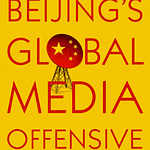
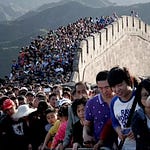
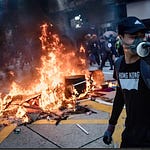


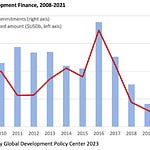
Share this post